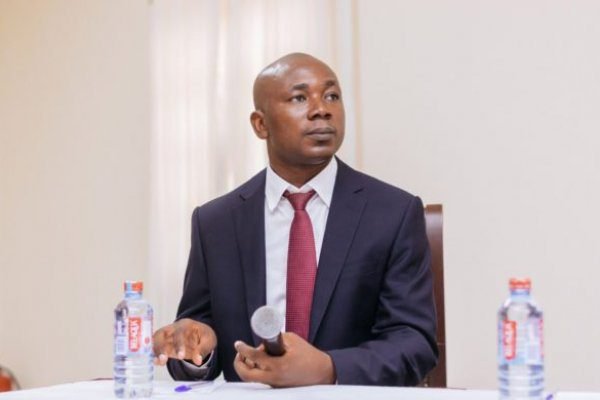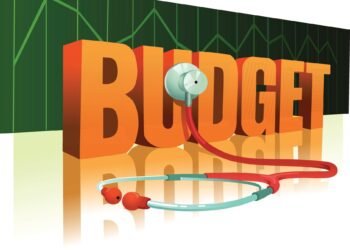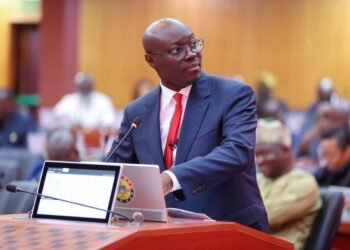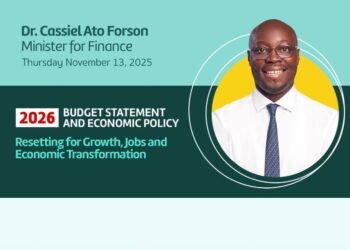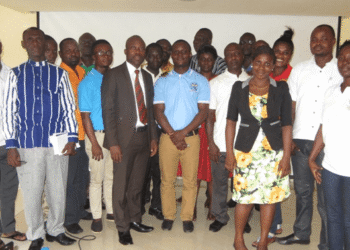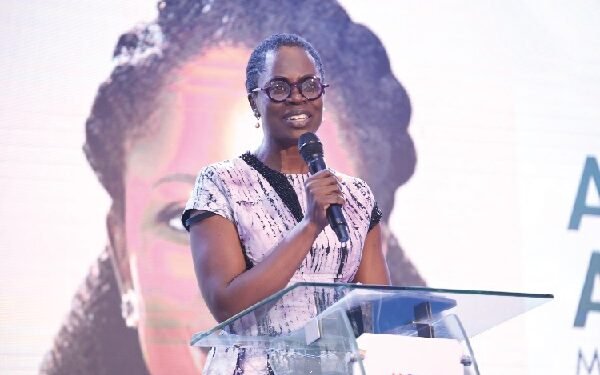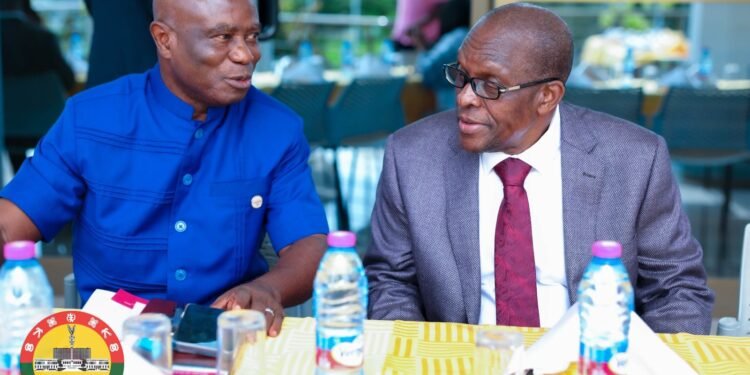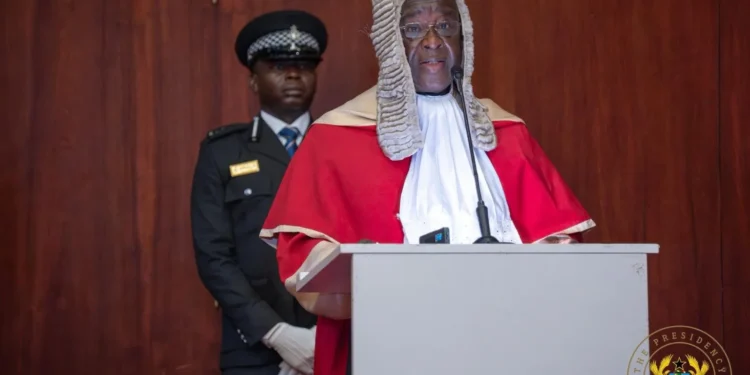Prof. Godfred Bokpin has clamped down on ‘misconceptions’ about the economic gains presented in the 2026 Budget questioning their measurability and feasibility.
He was quick to applaud the Finance Minister for the effective and impressive management of the fiscal space of the country this year. He acknowledged that the convergence and rollout of the government’s policies will activate an opportunity cost in certain cases. However, they are necessary to ensure growth and stability.
“I believe the government deserves a commendation for where we are. There is fiscal consolidation, and of course, it comes at a cost. If we analyze the cost, it is just like taking a medicine that has side effects.”
Prof. Godfred Bokpin
Speaking at an interview, he urged that the tightness that may be felt in certain areas, especially due to fiscal discipline and regulated spending, is a small price to pay for attaining the overall growth of the economy.

He also clarified that the economic instability experienced in 2020 was a buildup from 2017/2018, when indicators were focused on meeting the IMF program requirements while neglecting fiscal consolidation. He added that the consolidation of the energy sector and the financial sector clean-up could have cushioned the impact of Covid-19 and other external shocks.
“And let me also say that the 2017/2018 primary surplus shortfall was simply because we [Ghana] did not adopt a consolidated approach. We [Ghana] had the energy sector and the financial sector cleanup that were treated below the line, which allowed us [Ghana] to meet the IMF thresholds.
“And even when we [Ghana] passed the Fiscal Responsibility Act that cut fiscal deficit to 5%, we [Ghana] do more than 5%. If we [Ghana] had consolidated the energy sector and the financial sector clean up, we [Ghana] would have been doing around 7.1%, 7.2% growth.”
Prof. Godfred Bokpin
He also mentioned that Ghana has “sufficient data to learn from its own history and he believes that the government has responded quite well in terms of the fiscal consolidation.” He added that growth needs to be cultivated going forward, and the steps have been outlined in the Budget. “Yes, a higher price has been paid, but there is no time to vindicate them,” he said.
“You have the option to set a new marking scheme which posterity will use to judge the subsequent government in terms of how we can ensure fiscal discipline whilst we pursue growth post IMF programs,” Prof. Bokpin addressed the Minister during the interview.
He added that “if we look at what is happening now, we can relate it to what also happened in 2017/2018, when we [Ghana] were under the IMF program, the diligence and all of that. And when we exited the program, it looked like there was a relapse quite quickly.”
He, therefore, urged the Minister to choose the option of setting a new marking scheme. “I pray that three years from now, if we get a chance to meet here, the narrative will be different from what we have today.”
Ato Forson Reiterates the Government’s Commitment
Earlier on, the Minister of Finance, Dr. Cassiel Ato Forson, assured Ghanaians that the economic gains are feasible and can be measured by all, as revealed in the 2026 Budget.
While explaining his recently read 2026 Budget during the interview, the Minister was assertive in debunking claims that the 2026 Budget is not practical and quantifiable by a section of the populace.
“The gains we have made are feasible and measurable. The numbers they say don’t lie. And so, toss it, roast it, in the end, you can see the outcome of our policies.”
Dr. Cassiel Ato Forson
He stressed that, however the figures are turned to suit a viewpoint, the truth will always be established as the economic performance figures and impact are seen across the length and breadth of the country.
The Minister admitted that the government has a responsibility to sustain the current economic gains. He reiterated the government’s commitment to “find a balance between consolidation, stability, and growth, and particularly job creation.”
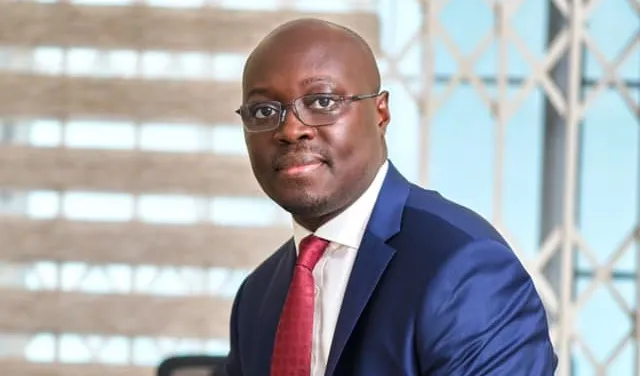
He clarified that the 2026 Budget is carefully designed to accelerate job creation and consolidate the gains made over the months.
“Create jobs, preserve growth, and allow growth to go into the real sector and invest prudently by cutting waste and directing the funds to support investment. That is where we are going. And we will, at the same time, ensure that we protect the poor by shielding them.
“And that is why you notice in the budget that the social protection budget is going up. You notice that, LEAP budget is going up. School feeding budget is going up, and many others.”
Dr. Cassiel Ato Forson
Dr. Forson alluded that “even at the district level, I have increased allocation from the District Assembly Common Fund that goes to persons with disability from 3% to now 5% and we are using part of the resources to buy motorized vehicles, wheelchairs, to support people with disability.”
He assured Ghanaians that the country is on the right path and the government, together with the citizens, must work to sustain the growth. He commended the resilience and tightening of the barriers of all Ghanaians to support the gains. “But I can also say that in loosening up, we will loosen up sustainably,” he concluded.
Therefore, the economic gains are feasible and commendable as agreed by the experts, but all Ghanaians are encouraged to support the sustenance of the growth.
READ ALSO: New CJ Must Lead Digital Reforms to Fast-Track Justice Delivery – IMANI Veep

